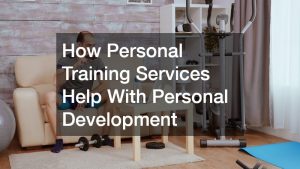America is the land of opportunity. Over the centuries, people have come to this country to better their fortunes. Even as restrictions have tightened, becoming an American citizen with the help of an immigration lawyer still represents the chance of a lifetime for many.
Immigrants often give up relative stability in their homeland; when they make a living here, they seize any chance to improve and climb upward. It’s a mindset most people who were born here should consider learning from.
Many young Americans grow up believing that a straightforward path culminating in a college education will lead to a good job. But a college degree alone doesn’t guarantee success in today’s world. Employers often feel that graduates aren’t equipped with the skills necessary to be ready for most jobs.
Meanwhile, students from the most affluent families can afford tutors, extracurricular activities, and other forms of training. These small advantages accrue over the years and put them at a clear advantage. If you’re not in that elite category, you can’t afford to rest on your laurels.
The need to get better
Thus, despite your educational attainment, you need to embrace the need for self-improvement if you want to further your career. And often, when people do so, they set big goals. This ties into our craving for pleasure; the mere act of planning something big is exciting.
Those goals can come in many areas; they aren’t limited to your day job. Maybe you plan to write a story in your spare time that turns into a best-seller or leads to your breakthrough writing for TV or the big screen. Or you envision shredding unhealthy fat, discarding your messy wardrobe, and walking around dressed to impress in clothes that fit perfectly.
Although big goals can give you an instant rush, they also set you up to crash if you fail to make progress. And the ensuing disappointment can do more harm in the long term. When your experience teaches you that your plans won’t get you anywhere, you’re more likely to give up without even trying. It can trap you in a spiral of negative thinking.
Making realistic progress
One way to avoid this problem is through an initial focus on your strengths. For various reasons, we’re often keenly aware of our deficiencies. We compare ourselves to high-status individuals and see things we don’t have. When we fail to measure up to standards, for instance, at a job interview, we’re often told to improve on our shortcomings.
However, it’s easier to change things that are under your control. And judging which habits are easier to shift in a positive direction is a skill in itself. Until you master that skill, you can get better returns on your efforts to improve by training your strengths and building some positive momentum.
That said, it will eventually be necessary to work on your weaknesses. Some bad habits will keep on holding you back if they persist. And everyone will inevitably encounter failure. You’ll have to train yourself to have the mindset of learning from mistakes and continuing to progress without feeling adverse psychological effects.
In this regard, the next thing you can do to get better is adopting a kaizen philosophy towards self-improvement. You need to gradually de-emphasize the big, splashy changes and shift your focus towards small, consistent, daily steps to get better.
In this way, your progress becomes less reliant on motivation and mood; it keeps a steady, growing pace. It’s an excellent way to push through the negativity of failure and frustration at trying to break bad habits.
Developing attributes

Self-improvement is a journey. Everyone’s path will be different; we’re all coming from disparate origins and headed towards our own goals. Sometimes, you’ll be competing against like-minded people who are also working hard to improve. Sometimes, they can serve as your mentors and support system instead.
The landscape of opportunity is constantly shifting around us. Just as the current education system isn’t preparing students for today’s work environment, the jobs of tomorrow might require skills that don’t exist yet. In this context, you can’t stop trying to learn or get better.
But ultimately, your improvement isn’t about what milestones you reach or what you accomplish in your career. After all those hours of hard work, your biggest reward should be the development of innate qualities that are timeless. Discipline, the love of continued learning, finding joy in hard work, and being a great collaborator and communicator; these attributes will prove valuable no matter how the future unfolds.







